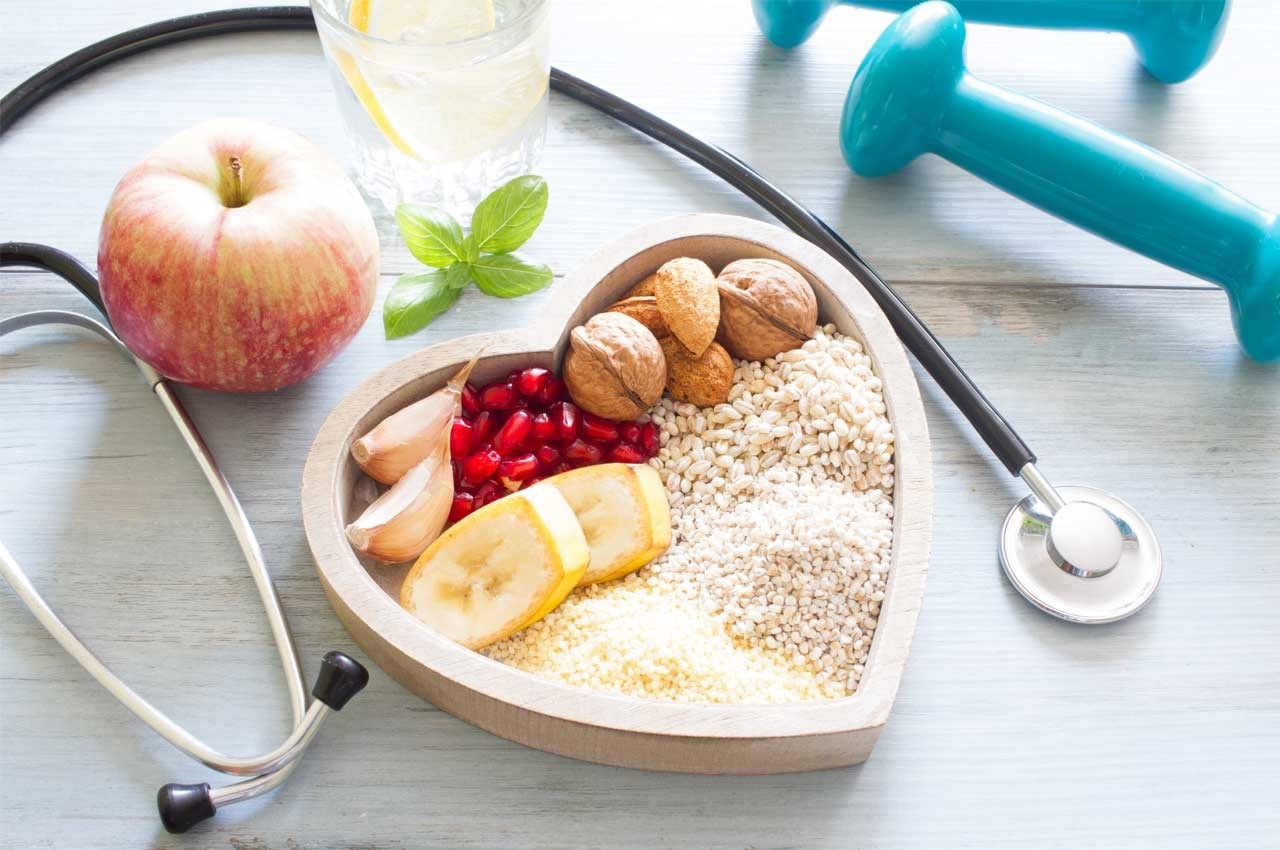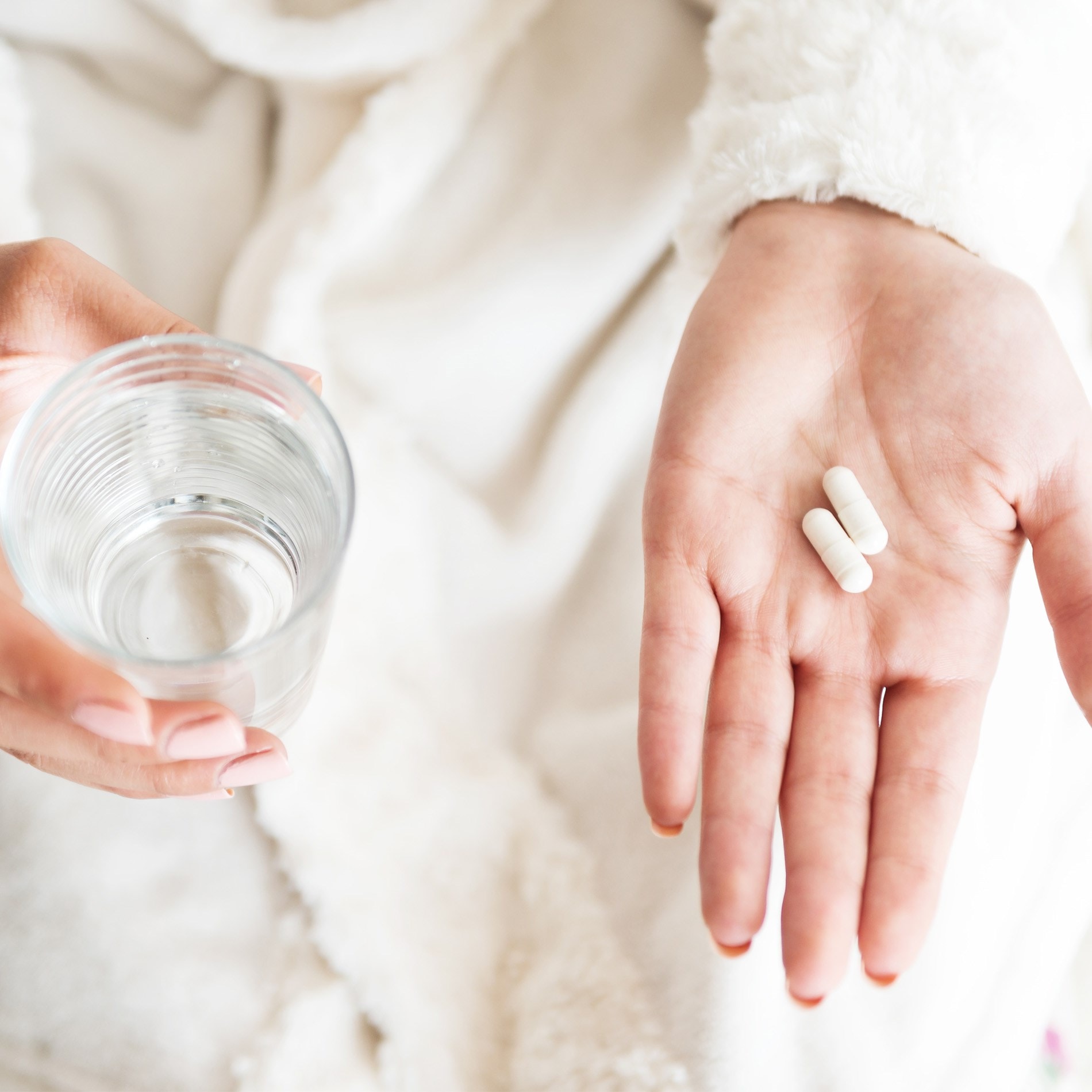Best Probiotics for Cholesterol and Heart Health
Did you know that probiotics and our gut bacteria play an important role in our cholesterol levels and heart health? It may be difficult to imagine that these seemingly unrelated areas of the body, the gut and heart, are connected. In fact, what happens in our gut influences cholesterol levels, inflammation, and body weight, each of which contribute to a healthy heart. Continue reading to learn about the best probiotics for cholesterol and heart health. Learn about the basics of probiotics by reading What are probiotics?
Key facts about probiotics, cholesterol and heart health covered in this article:
- Raised cholesterol levels are a recognised risk factor for developing heart disease and stroke.
- The bacteria living in our gut can affect our cholesterol levels.
- Supporting our gut health can help maintain healthy cholesterol levels in the body.
- Specific probiotic strains have been recognised to support healthy cholesterol levels including:
- Lactobacillus plantarum CECT 7527
- Lactobacillus plantarum CECT 7528
- Lactobacillus plantarum CECT 7529
- Lactobacillus reuteri NCIMB 30242
Within this article:
- Can probiotic supplements help cholesterol levels?
- How do live probiotic bacteria regulate cholesterol?
- Probiotics and heart health
- Probiotics and weight management
- Best probiotic strains for cholesterol, heart health, and weight management
- Conclusion

Can probiotic supplements help cholesterol levels?
Before we answer this question, let’s briefly look at what cholesterol is and what it does in the body.
Cholesterol is a type of fat that is essential in the body to build cells and make hormones and bile. We get our cholesterol in part from our diet and it is also produced by our liver. Issues arise when cholesterol levels become too high, increasing the risk of heart disease and stroke. To maintain healthy cholesterol levels, a balanced diet and an active lifestyle with regular exercise is essential. It is common for individuals to also need cholesterol-lowering medication such as statins. Although effective at lowering cholesterol, statin side effects can be bothersome.
This means that natural methods and supplements to manage cholesterol levels are often sought by individuals to use alone or alongside statins, and there has been a lot of interest recently into whether probiotics are good for lowering cholesterol. In addition to other supplements associated with cholesterol management, natural practitioners and health stores are being increasingly asked if there are probiotics for high cholesterol. Certainly, probiotics are an attractive option for those who are looking for a safe and natural supplement to support healthy cholesterol levels, as are certain other plant extracts which act as ‘natural statins’.
It may come as a surprise to some people that probiotics and cholesterol metabolism are in fact related. Although probiotics are not commonly associated with cholesterol management, various clinical studies1 have indicated that supporting our gut health with specific probiotic strains may help cholesterol levels. The bacteria living in our gut influence the absorption of cholesterol from our food and the production of cholesterol in the liver.
How do live probiotic bacteria regulate cholesterol?
It’s very difficult to imagine how bacteria in our gut can play a part in cholesterol management; however, it’s believed that there are several mechanisms by which probiotics may reduce cholesterol:
Reducing the absorption of cholesterol from our food
Some probiotic bacteria take up cholesterol from their surrounding environment and others have a sticky surface which cholesterol attaches to, preventing it from being absorbed in the gut2. Other probiotic strains prevent cholesterol from being absorbed by converting it into another compound called coprostanol3. Coprostanol cannot be absorbed in the intestines and is therefore eliminated in our stool.
Increasing the production of bile in the body which can reduce levels of circulating cholesterol.
Probiotic bacteria contain enzymes, which break down components of our food. Specific probiotic strains contain an enzyme called bile salt hydrolase which breaks down bile salts in the gut which are then excreted in our stools. Cholesterol is required to make more bile, so circulating cholesterol in the body is used to replace the bile salts that are lost4.
Reducing the production of cholesterol in the liver
Certain probiotic strains produce the short chain fatty acid, propionic acid5 which under certain conditions can reduce the production of cholesterol by the liver6.
Probiotics and heart health
Clinical research published earlier this year has found that probiotics can significantly improve health in those at risk of heart disease7. An important connection exists between the gut microbiome, probiotics and heart health8. Our gut microbiome plays a role in our cholesterol levels, weight, blood pressure levels, inflammation in the body, and oral health, each of which are important factors in heart health. Probiotics have been used in research and found to positively influence a number of factors associated with poor heart health.
Cholesterol levels
As discussed previously, the bacteria in our gut influences our cholesterol levels, a known risk factor for heart disease. High cholesterol is a significant risk factor for heart attack and stroke. Raised cholesterol levels can lead to narrowing of our arteries, known as atherosclerosis. In atherosclerosis, cholesterol and other substances stick to the wall of the blood vessel forming a plaque which builds up over time, eventually blocking the artery. These blockages in our blood vessels can lead to heart attack and stroke.
Weight
Obesity, particularly visceral fat (the fat accumulated in the abdomen around our major organs), is associated with an increased risk of developing cardiovascular disease9. The gut microbiome can affect our energy metabolism and weight10,11 and is discussed further below.
Blood pressure measurements
High blood pressure is one of the most prominent risk factors for the development of cardiovascular disease12. Clinical studies evaluating the effects of probiotics on blood pressure levels have had encouraging results7.
Inflammation
Inflammation of the blood vessel wall is a fundamental component of atherosclerosis and drives its progression13. A typical Western diet, high in processed foods and lacking in fresh whole fruit and vegetables, can lower diversity of the gut microbiome and encourage the growth of bacteria associated with inflammation14. This gut microbiome imbalance, known as dysbiosis, can contribute to inflammation in the body. Taking probiotics can help to bring the gut microbiome back into balance and replenish our levels of beneficial gut bacteria. Particular probiotic strains have been shown to help reduce the production of pro-inflammatory chemical messengers in the body15, including associations with better CRP levels16. This shows that probiotics may have a positive impact on inflammatory processes in the body.
Oral Health
Interestingly, poor dental hygiene and gum disease are associated with heart disease17. The mouth has the highest levels of bacteria in the body, after the gut18. Poor dental health allows harmful bacteria to flourish and contributes to the development of gum inflammation and cavities19. These same oral bacteria have been found in plaques in the arteries of individuals with heart disease20. Certain probiotic strains have been found to positively contribute to the maintenance of healthy gums and teeth by reducing the growth of more harmful bacteria21. Keeping our oral microbiome healthy may play a role in our heart health. To learn more, read the article Probiotics for bad breath.
Probiotics and weight management

The types of bacteria residing in our gut varies depending on our weight. Obese individuals have different gut microbiome compositions in comparison to lean individuals, and with weight loss, their gut bacteria becomes more like the gut bacteria of lean individuals22.
Although the mechanisms of how the gut microbiome and probiotics can influence weight are not fully understood, it is believed to be related to the influence of the gut bacteria on energy release from food and bile metabolism.
As mentioned above, the enzyme bile salt hydrolase, in certain strains of probiotics, plays an important role in weight gain, cholesterol metabolism, and fat metabolism. High levels of bile salt hydrolase activity have been found to result in significant reduction in weight and cholesterol levels in animal studies23.
The gut microbiome also influences other factors that contribute to weight management including inflammation, fat absorption from food, and hormone levels. To learn more on this topic, healthcare professionals may like to read Could probiotics help with weight loss? on the Probiotic Professionals site.
Best probiotic strains for cholesterol, heart health, and weight management
Maintaining healthy cholesterol levels positively influences our heart health. Certain strains of the probiotic bacteria Lactobacillus have been recognised for their impact on cholesterol levels in the body.
- Lactobacillus plantarum CECT 7527
- Lactobacillus plantarum CECT 7528
- Lactobacillus plantarum CECT 7529
The above strains were identified out of hundreds of screened strains to have excellent cholesterol removal ability and BSH activity in vitro5. In a gold standard trial including 60 individuals with raised cholesterol, the effects of the probiotic combination L. plantarum CECT 7527, L. plantarum CECT 7528 and L. plantarum CECT 7529 on cholesterol levels were assessed24. After three-months there were significant reductions in:
- After three-months there were significant reductions in:Total cholesterol (13.6%)
- LDL- C (14.7%)
- LDL-C: HDL-C (19.7%)
Interestingly, those with higher starting values resulted in greater reductions after probiotic supplementation suggesting these strains are even more effective for those with high cholesterol.
A more recent gold standard trial found the strains to be effective alongside red yeast rice (RYR) extract25. After 12 weeks, participants displayed significant reductions in total cholesterol (12%) and LDL-C (13%), similar results to the previous trial.
The strains have also demonstrated an excellent safety profile with no tolerability issues documented in the studies above. Another trial assessed the strains alongside a variety of medications including statins, fenofibrates, antihypertensive, antidiabetic and antiplatelets26. They were shown to be safe and effective with no tolerability issues related to probiotic intake.
- Lactobacillus reuteri NCIMB 30242
In another clinical trial, the probiotic strain, L. reuteri NCIMB 30242, was also shown to help maintain healthy cholesterol levels in individuals with raised cholesterol levels27.
Other probiotics have been demonstrated influence other risk factors for cardiovascular disease such as weight and inflammation.
- Lactobacillus rhamnosus CGMCC1.3724
Certain probiotic strains including L. rhamnosus CGMCC1.3724 have been researched for their potential in weight management and show early promising results28; however, further high quality clinical studies are required.
- Bifidobacterium lactis HN019
In a gold standard trial, the effects of the probiotics strain B. lactis HN019 was compared with a placebo in individuals with metabolic syndrome. The probiotic group demonstrated positive results in body mass index (BMI), total cholesterol levels and inflammation levels15. Healthcare professionals can read more about Bifidobacterium lactis HN019 on the Probiotics Database.
If you are interested in taking a probiotic to reduce your cholesterol but are taking medication or have additional health issues, we would always advise discussing supplementation with your GP or health practitioner. It is important not to stop any prescribed medication before talking to your doctor first.
Conclusion
- Diet and lifestyle play an important role in the maintenance of healthy cholesterol levels in the body.
- Probiotics are a natural, safe option to add into your daily regime to maintain healthy cholesterol levels and contribute to heart health.
- Probiotics can influence our cholesterol levels by:
- Reducing the absorption of cholesterol from our food
- Increasing cholesterol levels used in the body to make bile
- Reducing the amount of cholesterol produced by the liver.
- Probiotics can influence heart health by affecting:
- Cholesterol levels
- Weight
- Blood pressure
- Inflammation
- Oral health
- Always choose a high quality, well researched probiotic supplement containing strains researched for cholesterol maintenance and heart health, such as:
- Lactobacillus plantarum CECT 7527
- Lactobacillus plantarum CECT 7528
- Lactobacillus plantarum CECT 7529
- Lactobacillus reuteri NCIMB 30242
- Bifidobacterium lactis HN019
If you enjoyed this article, you may also like to read:
Gut health - all you need to know
Probiotics for men
Gut bacteria shapes weight loss
References
- Wang L, Guo MJ, Gao Q, et al. The effects of probiotics on total cholesterol. Med (United States). 2018;97(5). doi:10.1097/MD.0000000000009679
- Lye HS, Rahmat-Ali GR, Liong MT. Mechanisms of cholesterol removal by lactobacilli under conditions that mimic the human gastrointestinal tract. Int Dairy J. 2010;20(3):169-175. doi:10.1016/j.idairyj.2009.10.003
- Lye HS, Rusul G, Liong MT. Removal of cholesterol by lactobacilli via incorporation and conversion to coprostanol. J Dairy Sci. 2010;93(4):1383-1392. doi:10.3168/jds.2009-2574
- Jones ML, Tomaro-Duchesneau C, Martoni CJ, Prakash S. Cholesterol lowering with bile salt hydrolase-active probiotic bacteria, mechanism of action, clinical evidence, and future direction for heart health applications. Expert Opin Biol Ther. 2013;13(5):631-642. doi:10.1517/14712598.2013.758706
- Bosch M, Fuentes MC, Audivert S, Bonachera MA, Peiró S, Cuñé J. Lactobacillus plantarum CECT 7527, 7528 and 7529: probiotic candidates to reduce cholesterol levels. J Sci Food Agric. 2014;94(4):803-809. doi:10.1002/jsfa.6467
- Demigné C, Morand C, Levrat M-A, Besson C, Moundras C, Rémésy C. Effect of propionate on fatty acid and cholesterol synthesis and on acetate metabolism in isolated rat hepatocytes. Br J Nutr. 1995;74(2):209-219. doi:10.1079/bjn19950124
- Dixon A, Robertson K, Yung A, et al. Efficacy of Probiotics in Patients of Cardiovascular Disease Risk: a Systematic Review and Meta-analysis. Curr Hypertens Rep. 2020;22(9). doi:10.1007/s11906-020-01080-y
- Ettinger G, MacDonald K, Reid G, Burton JP. The influence of the human microbiome and probiotics on cardiovascular health. Gut Microbes. 2015;5(6):719-728. doi:10.4161/19490976.2014.983775
- Després JP. Body fat distribution and risk of cardiovascular disease: An update. Circulation. 2012;126(10):1301-1313. doi:10.1161/CIRCULATIONAHA.111.067264
- Heiss CN, Olofsson LE. Gut Microbiota-Dependent Modulation of Energy Metabolism. J Innate Immun. 2018;10(3):163-171. doi:10.1159/000481519
- Rosenbaum M, Knight R, Leibel R. The gut microbiota in human energy homeostasis and obesity. Trends Endocrinol Metab. 2015;26(9):493-501. doi:10.1016/j.tem.2015.07.002.The
- Wu CY, Hu HY, Chou YJ, Huang N, Chou YC, Li CP. High blood pressure and all-cause and cardiovascular disease mortalities in community-dwelling older adults. Med (United States). 2015;94(47):e2160. doi:10.1097/MD.0000000000002160
- Galkina E, Ley K. Immune and Inflammatory Mechanisms of Atherosclerosis. Annu Rev Immunol. 2009;27(1):165-197. doi:10.1146/annurev.immunol.021908.132620.Immune
- Zinöcker MK, Lindseth IA. The western diet–microbiome-host interaction and its role in metabolic disease. Nutrients. 2018;10(3):1-15. doi:10.3390/nu10030365
- Bernini LJ, Simão ANC, De Souza CHB, et al. Effect of Bifidobacterium lactis HN019 on inflammatory markers and oxidative stress in subjects with and without the metabolic syndrome. Mineral Mag. 2018;120(6):645-652. doi:10.1017/S0007114518001861
- Sanaie S, Ebrahimi-Mameghani M, Mahmoodpoor A, Shadvar K, Golzari SE. Effect of a Probiotic Preparation (VSL#3) on CardiovascularRisk Parameters in Critically-Ill Patients. J Cardiovasc Thorac Res. 2013;5(2):67-70. doi:10.5681/jcvtr.2013.014
- Mustapha IZ, Debrey S, Oladubu M, Ugarte R. Markers of Systemic Bacterial Exposure in Periodontal Disease and Cardiovascular Disease Risk: A Systematic Review and Meta-Analysis. J Periodontol. 2007;78(12):2289-2302. doi:10.1902/jop.2007.070140
- Deo PN, Deshmukh R. Oral microbiome: Unveiling the fundamentals. J Oral Maxillofac Pathol. 2019;23(1):122-128. doi:10.4103/jomfp.JOMFP_304_18
- Darveau RP. Periodontitis: A polymicrobial disruption of host homeostasis. Nat Rev Microbiol. 2010;8(7):481-490. doi:10.1038/nrmicro2337
- Koren O, Spor A, Felin J, et al. Human oral, gut, and plaque microbiota in patients with atherosclerosis. Proc Natl Acad Sci U S A. 2011;108(SUPPL. 1):4592-4598. doi:10.1073/pnas.1011383107
- Krishnan V, Divya VC, Arun E, Ganesh C. Probiotics for oral health. Biomed. 2014;34(4):438-441.
- Turnbaugh PJ, Ley RE, Mahowald MA, Magrini V, Mardis ER, Gordon JI. An obesity-associated gut microbiome with increased capacity for energy harvest. Nature. 2006;444(7122):1027-1031. doi:10.1038/nature05414
- Joyce SA, MacSharry J, Casey PG, et al. Regulation of host weight gain and lipid metabolism by bacterial bile acid modification in the gut. Proc Natl Acad Sci U S A. 2014;111(20):7421-7426. doi:10.1073/pnas.1323599111
- Fuentes MC, Lajo T, Carrión JM, Cuñé J. Cholesterol-lowering efficacy of Lactobacillus plantarum CECT 7527, 7528 and 7529 in hypercholesterolaemic adults. Br J Nutr. 2013;109(10):1866-1872. doi:10.1017/S000711451200373X
- Guerrero-Bonmatty R, Gil-Fernández G, Rodríguez-Velasco FJ, Espadaler-Mazo J. A Combination of Lactoplantibacillus plantarum Strains CECT7527, CECT7528, and CECT7529 Plus Monacolin K Reduces Blood Cholesterol: Results from a Randomized, Double-Blind, Placebo-Controlled Study. Nutrients. 2021;13(4):1206. doi:10.3390/nu13041206
- Espadaler J, Audivert S, Navarro-Tapia E, Buj D. Demographic and clinical characteristics influencing the effects of a cholesterol-lowering probiotic. Ann Nutr Metab. 2019;74(6).
- Jones ML, Martoni CJ, Prakash S. Cholesterol lowering and inhibition of sterol absorption by Lactobacillus reuteri NCIMB 30242: A randomized controlled trial. Eur J Clin Nutr. 2012;66(11):1234-1241. doi:10.1038/ejcn.2012.126
- Sanchez M, Darimont C, Drapeau V, et al. Effect of Lactobacillus rhamnosus CGMCC1.3724 supplementation on weight loss and maintenance in obese men and women. Br J Nutr. 2014;111(8):1507-1519. doi:10.1017/S0007114513003875
Popular Articles
View all General Health articles-
General Health18 Feb 2025
-
General Health08 Jan 2025
-
General Health26 Nov 2025


